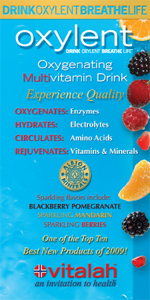18.5 - 24.9 = Normal
25 - 29.9 = Overweight
> 30 = Obesity



If time permits, I would like to sign up for a proper course. It was good exercise :)
- Beatty Sec
- Beatty Sec
- Beatty Sec
- ICA
- CHIJ St Nicholas Girls School
There were so many moves of self-defense. Coaches are very nice. This rocks!
- Northland Primary
- CHIJ St Nicholas Girls School
Coach make us feel “Taichi"
- Hong Wen School
I want to learn more advanced Taichi.
- Hong Wen School
- Princess Elizabeth Primary
The coach is very good in Wushu, I would like to continue learning.
- Princess Elizabeth Primary
- Princess Elizabeth Primary
Read More >>
(WORD COUNT: 449)
Research has shown that vitamins synthesized in the laboratory are no less effective for bodily functions than vitamins derived from food sources. When deficiencies are present, vitamin supplement can reverse the deficiency symptoms. On the other hand, when vitamin intake reaches recommended levels, supplements have not been shown to enhance or improve exercise performance.
Consumption of excess vitamin above recommended levels does not prevent the general population against upper respiratory tract infection (URTI). Yet, daily supplements of 500 to 1500 mg may present some benefit to individuals engaged in strenuous exercise who experience frequent viral infections.
Moderate intensity of exercise improves immune function, whereas a prolonged duration of intense physical activity (marathon running or an intense training session) rapidly suppresses the body's first line of defense against infectious agents. This increases the risk of URTI within 1 or 2 weeks of the exercise stress. For these individuals, additional vitamin C and E and perhaps carbohydrate ingestion before, during, and following a workout may boost the normal immune mechanisms for combating infection.
B-complex vitamins play key roles as coenzymes to regulate energy-yielding reactions during carbohydrate, fat and protein catabolism. Supplementing with vitamin B6, which is an essential cofactor in glycogen and amino acid metabolism, did not do good to the metabolic mixtures metabolized by women during high intensity aerobic exercise.
In most cases, athletes' status for this vitamin is the same as the reference standards for the general population and does not decrease with strenuous exercise to a level which needs any additional supplementation. Taking for instance, for endurance-trained men, 9 days of vitamin B6 supplementation (20 mg per day) provided no ergogenic effect on cycling to exhaustion performed at 71% of aerobic capacity.
Constant high-potency, multivitamin-mineral supplementation for well-nourished, healthy individuals does not enhance aerobic fitness, muscular strength, and athletic performance. In addition to the B-complex group, no exercise benefit exists for excess vitamins C and E on stamina, circulatory function, or energy metabolism. Taking for instance, short-term daily supplementation with vitamin E (400IU) produced no effect on normal neuroendocrine and metabolic responses to strenuous exercise or performance time to exhaustion.
The monitoring of Vitamin C status which is assessed by serum concentrations and urinary ascorbate levels, in trained athletes does not show any difference from that in untrained subjects even though with large differences in daily physical activity level. Other investigators report similar findings for this and other vitamins. Physically active persons usually increase their energy intake to meet with the increases energy requirement of physical activity. Thus, a proportionate increase also occurs in micronutrient intake, which very often in amounts greatly exceeding recommended levels. (McArdle, W. D. et al., 2007)
Vitamin supplements, exercise, energy intake.
Durstibe, J.L., (2006) Action Plan For High Cholersterol Human Kinetic
Halliwell, B. (1996) Oxidative stress, nutrition and health: Experimental strategies for optimization of nutritional antioxidant intake in humans. Free Radical Research 25 57-74
Howley, E.T. and B.D. Franks, (2003) Health Fitness Instructor's Handbook (4th Ed) Human Kinetics
Lemon, P.W. (1998) Effects of exercise on dietary protein requirements. International Journal of Sports Nutrition
Lukaski, H. (2001) Magnesium, zinc and chromium nutrition and athletic performance. Canadian Journal of Applied Physiology 26 13-22
M.Forgac (1979) Carbohydrate Loading: A Review. Journal of the American Dietetic Association 75 42-45
Marieb, N.E., (2006) Essential of Human Anatomy & Physiology (8th Ed) Pearson Benkamin Cummings San Francisco
Marieb, N.E. and H. Katja, (2007) Human Anatomy & Physiology (7th Ed) Pearson Benkamin Cummings
McArdle, W.D. et al., (2007) Exercise Physiology, Energy, Nutrition & Human Performance (6th Ed) Lippincott Williams & Wilkins Baltimore
Newhouse and Finstad (2000) The effects of magnesium supplementation on exercise performance. Clinical Journal of Sport Medicine 10 195-200
Rico-Sanz, J., et al. (1999) Muscle glycogen degradation during simulation of a fatiguing soccer match in elite soccer players examined noninvasively by 13C-MRS. Medicine & science in Sports & Exercise 31 1587-1593
Stafford-Brown, J. et al., (2003) BTEC National In Sport and Exercise Science Hodder Education London
Vitamins and minerals and the athlete Website (2008) http://www.bupa.co.uk (12th May 2008)
Williams, H.M., (2007) Nutrition for Health, Fitness, & Sport (8th Ed) McGraw Hill

 Multivitamin Drink
Multivitamin Drink
 More info >>
More info >>
 More info >>
More info >>
 Sports Massage Therapy
Sports Massage Therapy